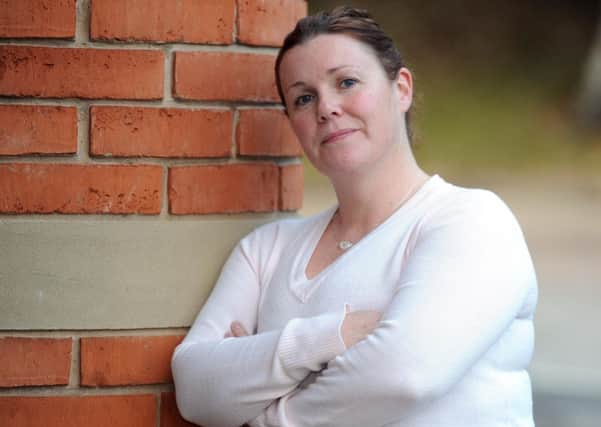Mum’s the word when it comes to talk of British recovery


It’s taken a while – five years in fact, but according to David Cameron the green shoots of economic recovery are beginning to emerge.
Not everyone sees it that way. While the Prime Minister was doing his best line in optimism on his visit to Yorkshire last week, a survey of working families suggested many are struggling to share his confident outlook.
Advertisement
Hide AdAdvertisement
Hide AdThe Asda Mumdex concluded we have five more years of belt-tightening to look forward to and that by 2018 the average UK household will be £1,300 a year worse off in real terms than in 2009, when spending power was at its peak.
Dawn Brown, 39, is a Leeds mother-of-two who juggles work and home life and understands the pressures which are put on most working families, although as a single parent, she probably feels them more than most.
“I think most households still find it very difficult to cope. They are seeing prices increasing and wages either staying the same or decreasing. I work part-time but almost half my wage goes on child care costs, which for me at the moment are about £350 a month.
“I have heard people say I would be financially better off not working but one of the main reasons I work is to be something other than a mum. I do it for the money but also for the social contact I get with other people, and I enjoy it.”
Advertisement
Hide AdAdvertisement
Hide AdThe Asda Mumdex consists of a panel of over 5,500 mums of varying ages and backgrounds. The report found that for more than 70 per cent of non-working mums, going back to work wouldn’t make financial sense, as hefty child care costs would leave them financially worse off.
Ceri Goddard, chief executive of the Fawcett Society, which campaigns for women’s right, said: “For seven in 10 mums surveyed, sky high childcare costs mean work doesn’t pay. We urgently need to see more done to support parents in combining paid work with responsibilities in the home. More flexible working practices should become the norm, not the exception.”
Matt Carmichael, a teacher at Roundhay School in Leeds, who also lectures in economics and is part of Schumacher North, an independent economic think tank and pressure group, is pessimistic about the future.
“I have to be honest – I think things are likely to be worse than that by 2018 and I think even after that we are likely to see the economy moving from boom to bust. The problem we have is peak oil – that is the amount of oil we are able to produce per day, which has already peaked. It’s not about what is left in the ground, it’s just about how fast we can get it out and at the moment, we cannot do it fast enough. That is why you see companies turning to expensive extraction methods, like tar sand.
Advertisement
Hide AdAdvertisement
Hide Ad“Oil affects everything in our society and at the moment there is no real alternative. What we need is a massive investment in a new infrastructure based on renewable energy. The problem is that whenever there is a recovery of sorts, then there is suddenly more demand for oil and that pushes the price up, which in turn puts us into another economic depression.
“In 2008, there were food riots in 38 countries around the world because people could not afford to buy basic foodstuffs. This may not happen every year but I would predict we are likely to see more events like this.”
According to Rob Warm, from the National Housing Federation, a lack of housing continues to put pressure on the rental market, with rents in some of Yorkshire’s major towns and cities likely to double in the next five years.
He said: “Leeds already has some of the highest rents in the north of England. When you take into account the fact that utility bills are also going up and that wages are not likely to keep pace with these increases, it means people have limited choices in terms of where they live.
Advertisement
Hide AdAdvertisement
Hide Ad“This sort of thing has all kinds of knock-on effects for society. A recent survey found that a quarter of all people in Yorkshire with adult children still have one living at home, essentially because they cannot afford to move out. So, things like a lack of housing have a direct effect on people’s lives, because it stops them moving on with their lives, it means they start families later.
“What we would like to see is a long-term sustainable housing strategy for Leeds and at the moment we do not have that.”
Previously, the NHF has called on Leeds City Council to release large areas of ‘brownfield’ land to kick-start house building in the city. News that the NHF believes rents will further increase could mean that in some cases it will soon be more expensive to rent than to pay a mortgage.